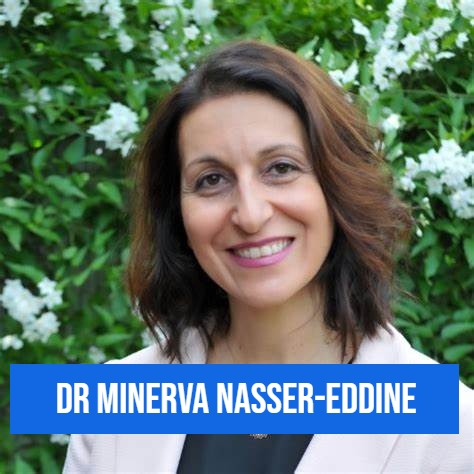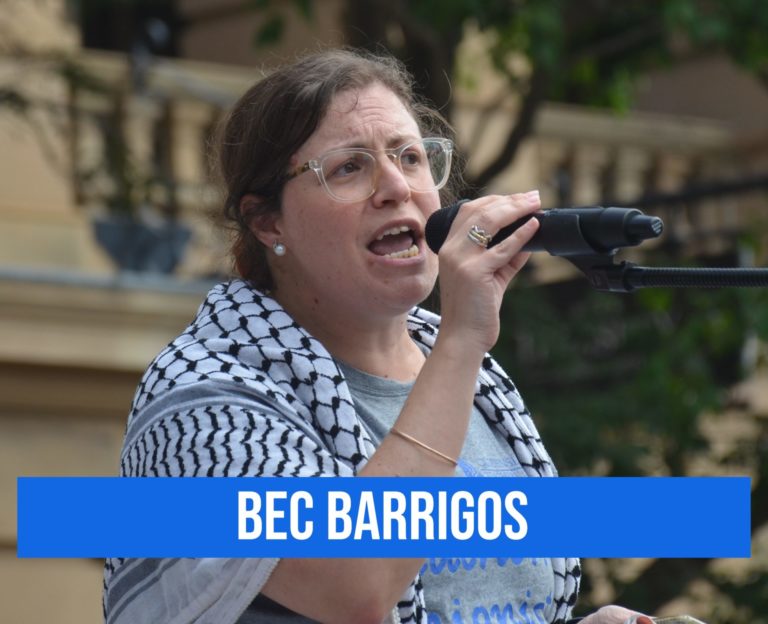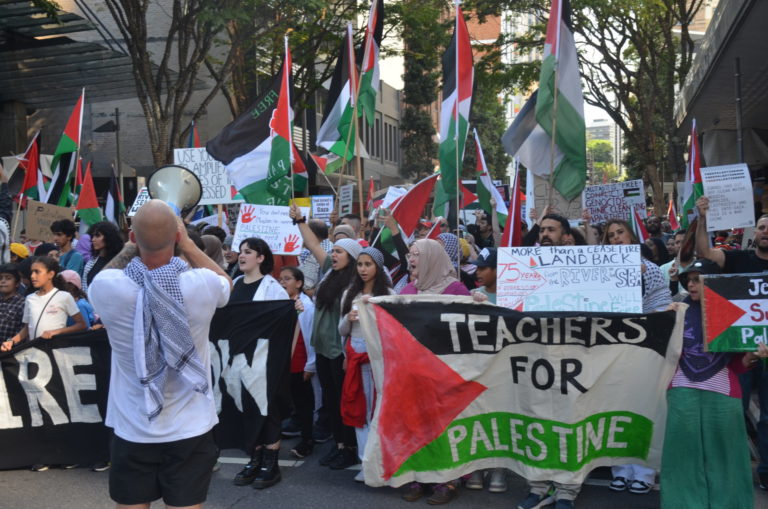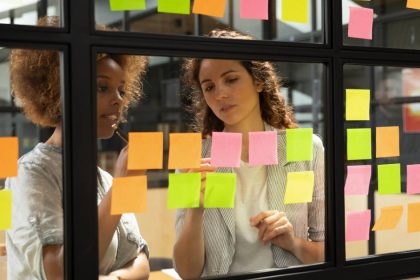Students across Australia took to the streets last week, calling for an end to the conflict in Gaza.
For educators, the current conflict has called into question how to manage discourse on world events that can be contentious for students of differing ethnic backgrounds.
Dr Minerva Nasser-Eddine has been teaching Middle Eastern politics at a variety of tertiary institutions and now is a political and social risk consultant for the Al Hikma Middle East Advisory Agency. She told EducationDaily that the major challenge around teaching the topic comes from the misperceptions, preconceptions, and misrepresentations around the Middle East and its inhabitants – and specifically the Palestinian-Israeli-Arab conflict.
“The spread of misinformation and disinformation in recent years (especially in the current conflict) adds a further layer of complexity,” she says.
“[Teachers will need to] know their subject matter, be culturally sensitive and aware, and be willing to learn and be informed by students. Language matters – not only in delivering content but also in responding to questions.”

Teachers making their position known
In Brisbane, around 1000 students attended a strike held on Sunday 26 November.
Teacher Bec Barrigos attended the strike and told EducationDaily about her experience as a teacher and her own approach to class discussions.
“The issue of what side you stand on when a genocide is happening is not being contentious,” she says.
“I think that many students – and that’s demonstrated by the school strikers – have taken their own independent political action outside of what educators might have thought. On the question to stand for justice and an end to war, they’re showing the lead.”

Fundamental rights or student safety issue?
Ahead of the student strike in Melbourne on 24 November, Victorian Premier Jacinta Allan told a media conference “it’s my expectation that students go to school on that day” but added that “being able to come together and hold a rally, a peaceful rally…that’s a fundamental principle of our democracy that must not and should not change”.
Both the Victorian Department of Education and the Victorian Student Representative Council also defended the students’ right to protest. However, Executive Council of Australian Jewry co-CEO Alex Ryvchin condemned the rallies and called on teachers and students to not attend.
“Jewish students and teachers will never feel safe and accepted among colleagues and peers that participate in these actions,” he said.
In response to a Victorian Teachers and School Staff for Palestine Week of Action campaign that invited teachers to show solidarity with Palestine by wearing a traditional keffiyeh scarf, screening films featuring Palestinian perspectives or inviting advocates into classrooms, Premier Allan said the Education Department was working with schools.
Teachers were warned they would face misconduct processes if they were found to be in breach of their professional code of conduct.
Teachers should be led by student consciousness
Ms Barrigos says, as an educator you should be led by the consciousness of your students when discussing current events.
“I’ve been really pleased to see so many students take a stand [for Palestine],” she says.
“I feel like, for them, they’re people who see injustice and they can recognise it, you know young people have a very strong sense of justice.
“They can see there are problems in society, and just like the climate strikers have shown – when there is a problem in the world, a student’s first instinct is, ‘let’s solve it, what actions can we take to solve it?’”
Role-plays help uni students gain fresh perspectives
But some students don’t take to understanding the complexity of the conflict so easily.
Ms Nasser-Eddine has been incorporating role-plays and simulation exercises in her teaching.
“Where possible, I allocate roles to students,” she says.
“This usually arises well into the teaching period when I feel I have a sound understanding of where students are coming from (including current sensitivities); particularly among those who may have a direct connection with key ethnic, cultural or political groups. If appropriate, I intentionally allocate role-plays to students to represent the opposing side they are accustomed to.”
It’s an approach that, she says, “challenges students to immerse themselves in the shoes of ‘the other'”.
“It may generate unease and discomfort in speaking in the ‘voice’ of the other, however, once this initial hurdle is overcome it provides an opportunity for students to gain a sense of the position and/or grievances the other party may hold and/or have experienced,” she told EducationDaily.
“As an educator, it provides me with a sense of satisfaction when I see students peel away their own biases and preconceptions, and to witness the impact of such revelations.”
Religion should not play a part
Ms Nasser-Eddine says one of the most frustrating questions she has to field as a tertiary educator is based on her religion.
“My response generally encapsulates the following: ‘Are you of the view that if I adhere to a particular faith that will change the historical and contemporary content we are examining? How do you think this may be relevant to the topic?’,” she says.
“Sadly, over the years the discourse of the Palestinian-Israeli-Arab conflict has changed, in recent years the narrative suggests the root cause of the conflict is a faith-based one.
“I often refer to the fact the root cause of the conflict was based on conflicting European colonial promises and ‘Western’ national interests, territory and resources, political ideology, and the realities of two peoples, and not religion.
“Noting, for centuries the multi-ethnic and multi-religious people of Palestine-Israel have predominantly co-existed peacefully and harmoniously, and regardless of these differences.”
Critical thinking is key
Ms Barrigos says her struggle has been in teaching students how to navigate misinformation and disinformation regarding the conflict.
“I think the students have grown up in a digital age, they’re very savvy with social media with its uses and misuses,” she says. “I believe that is why young people’s voice is so important. As the school strikers in Melbourne have said, ‘getting an education should be about having a purpose and that purpose should be making society better’. Teachers should be as unafraid – at least, of our students – standing for human rights and being proud of that position when we can take it.”










